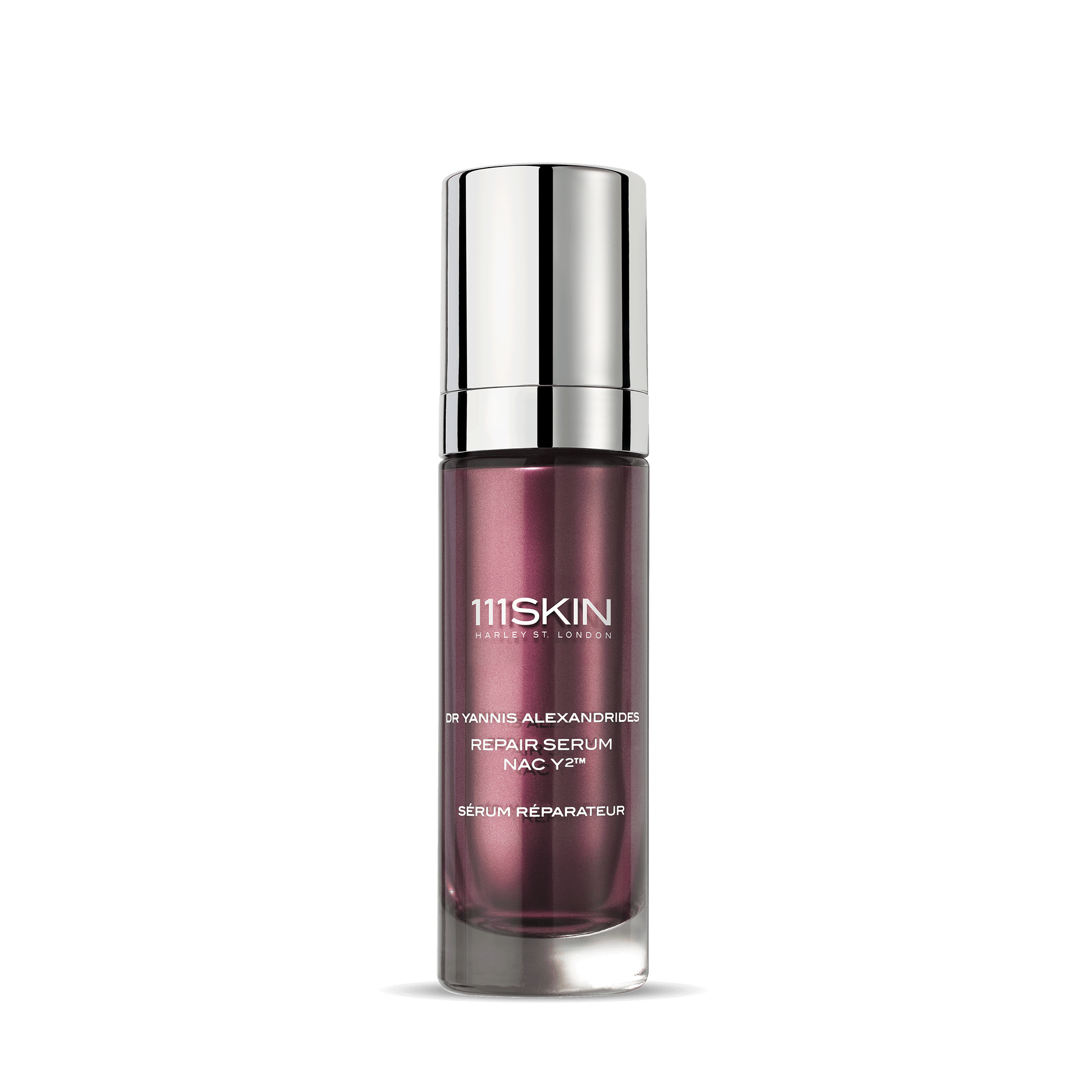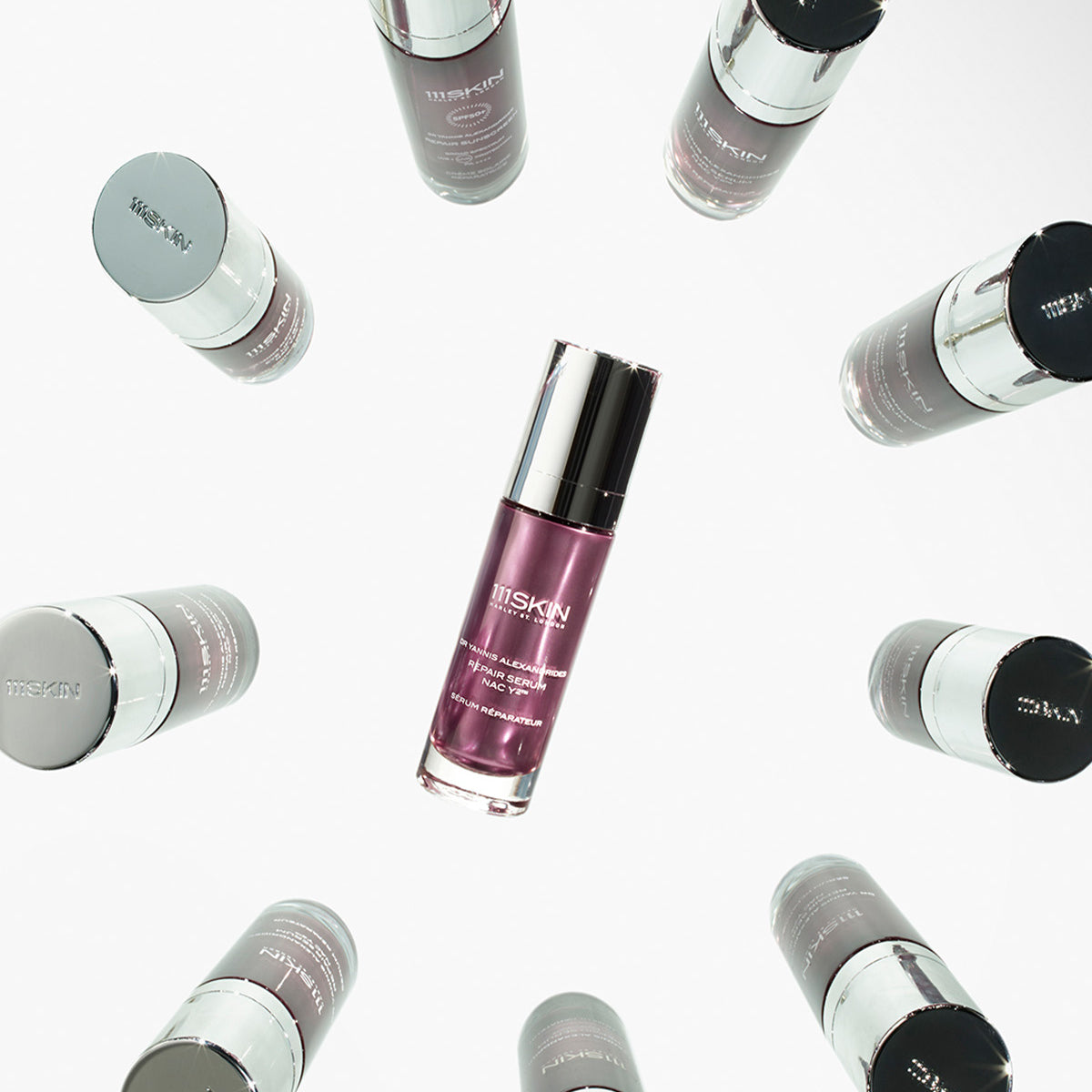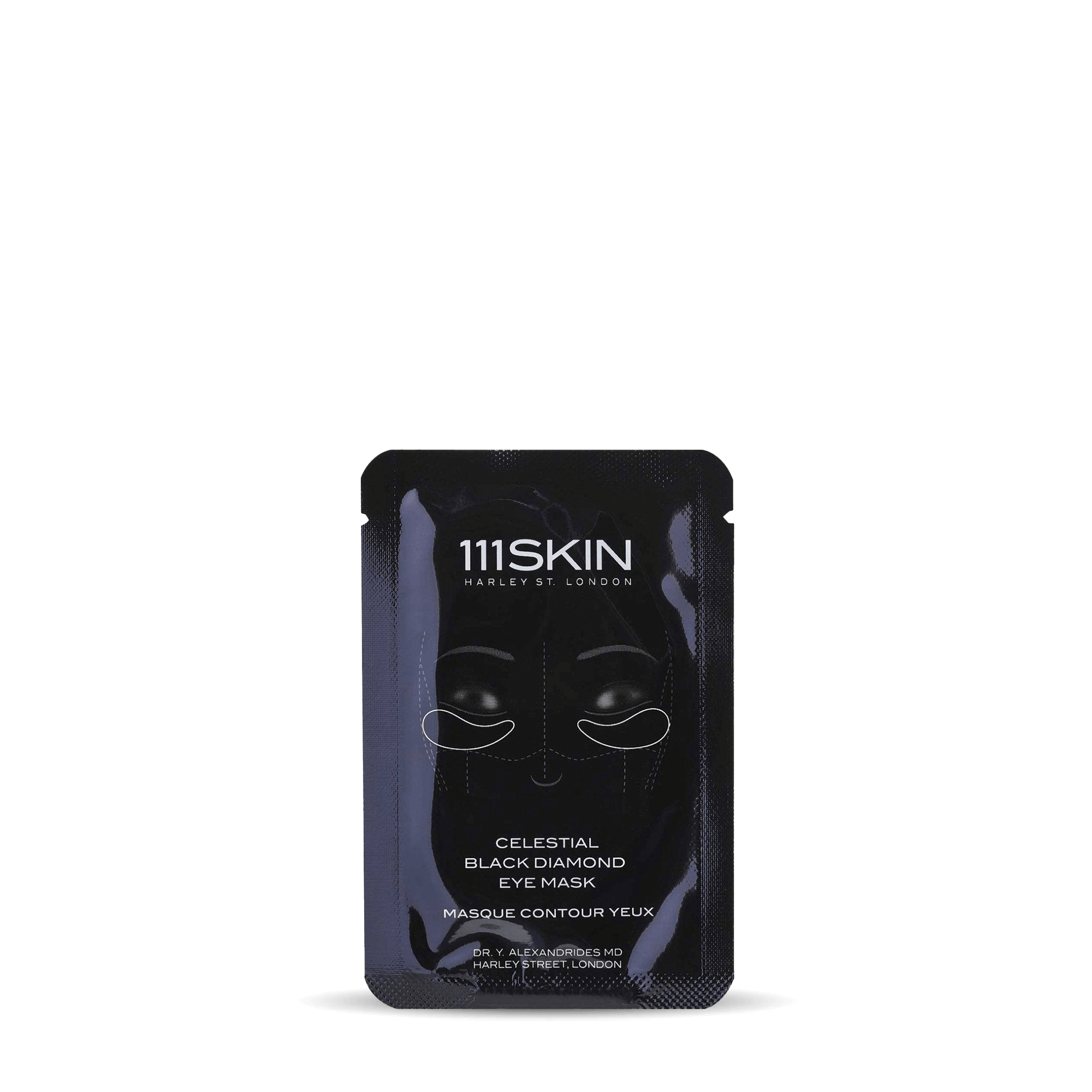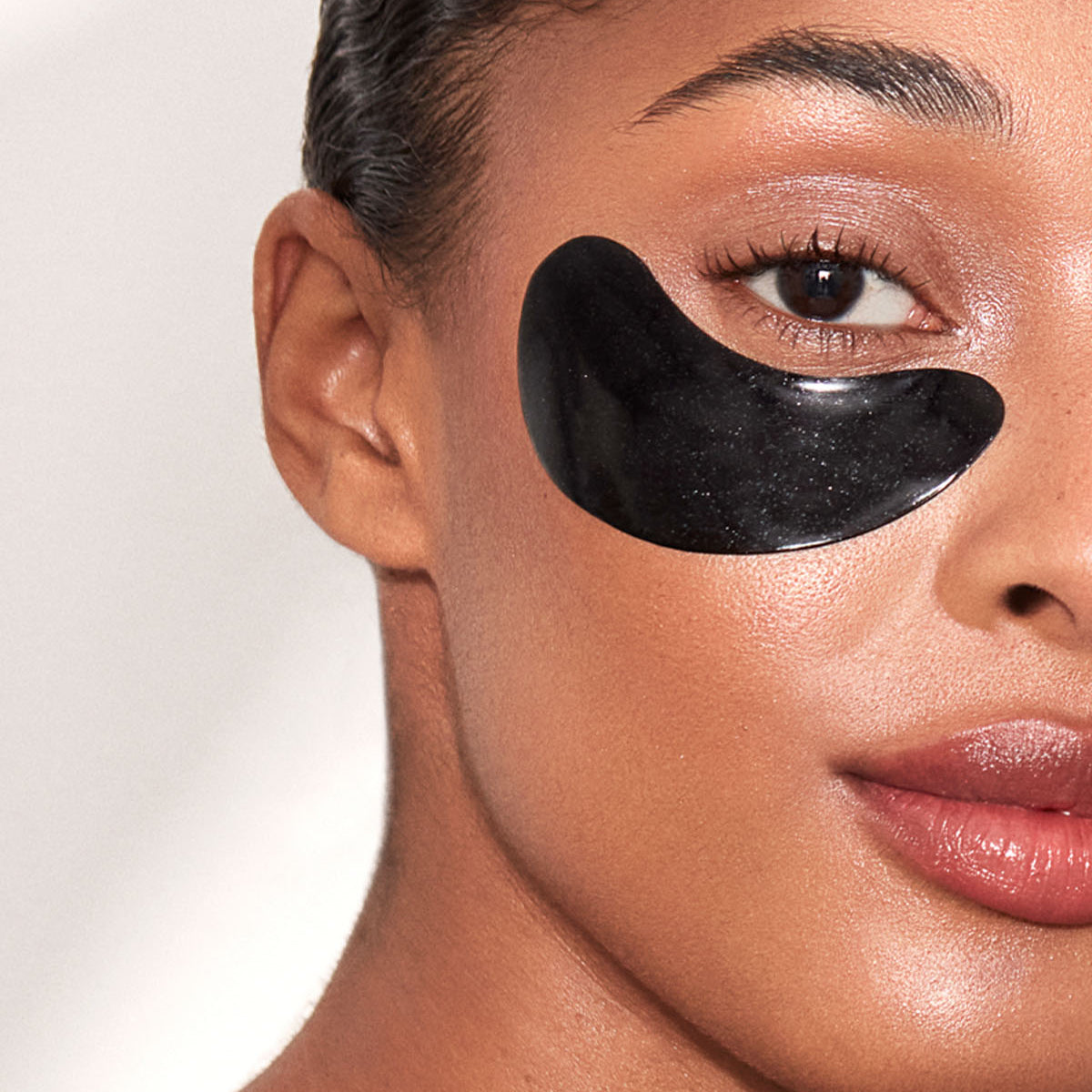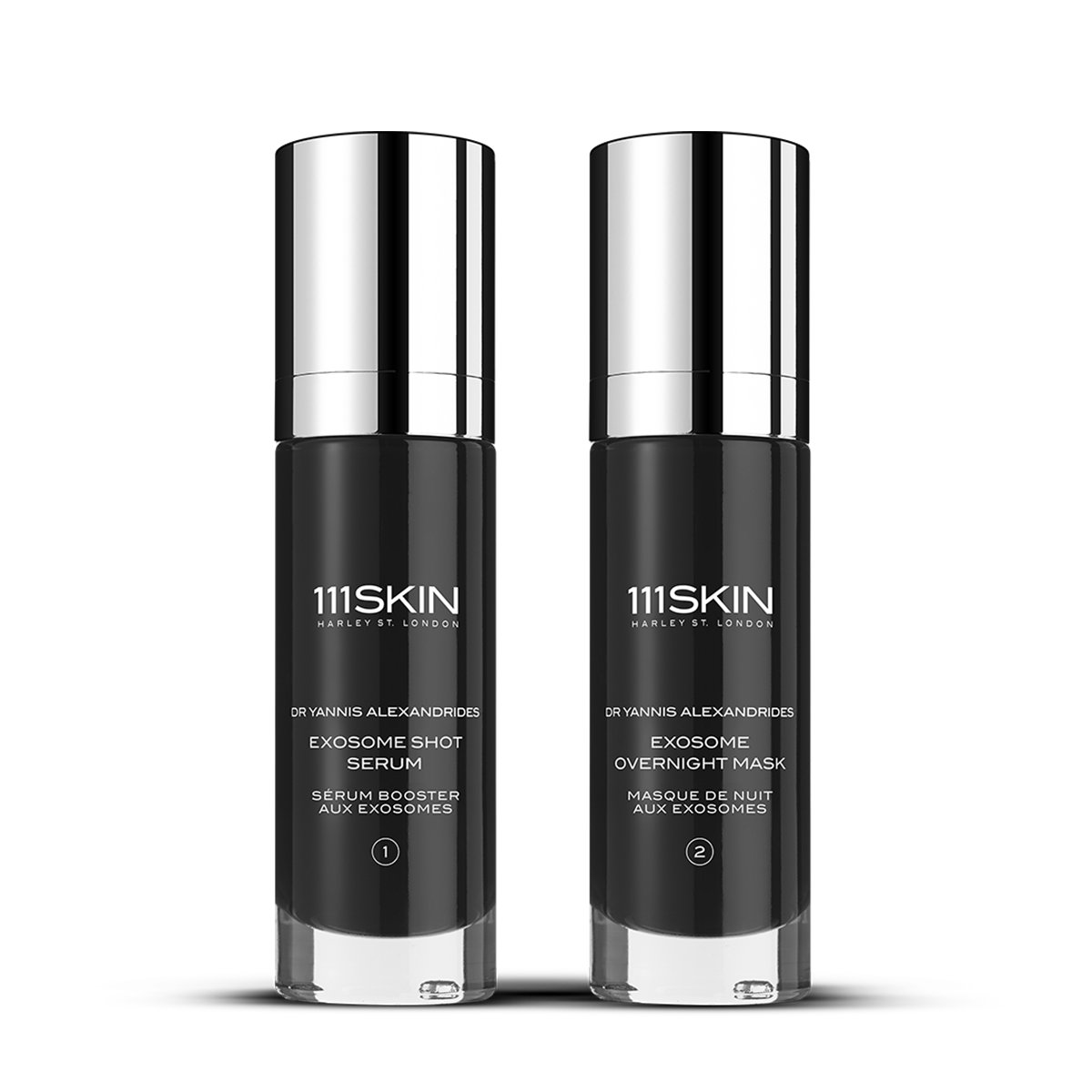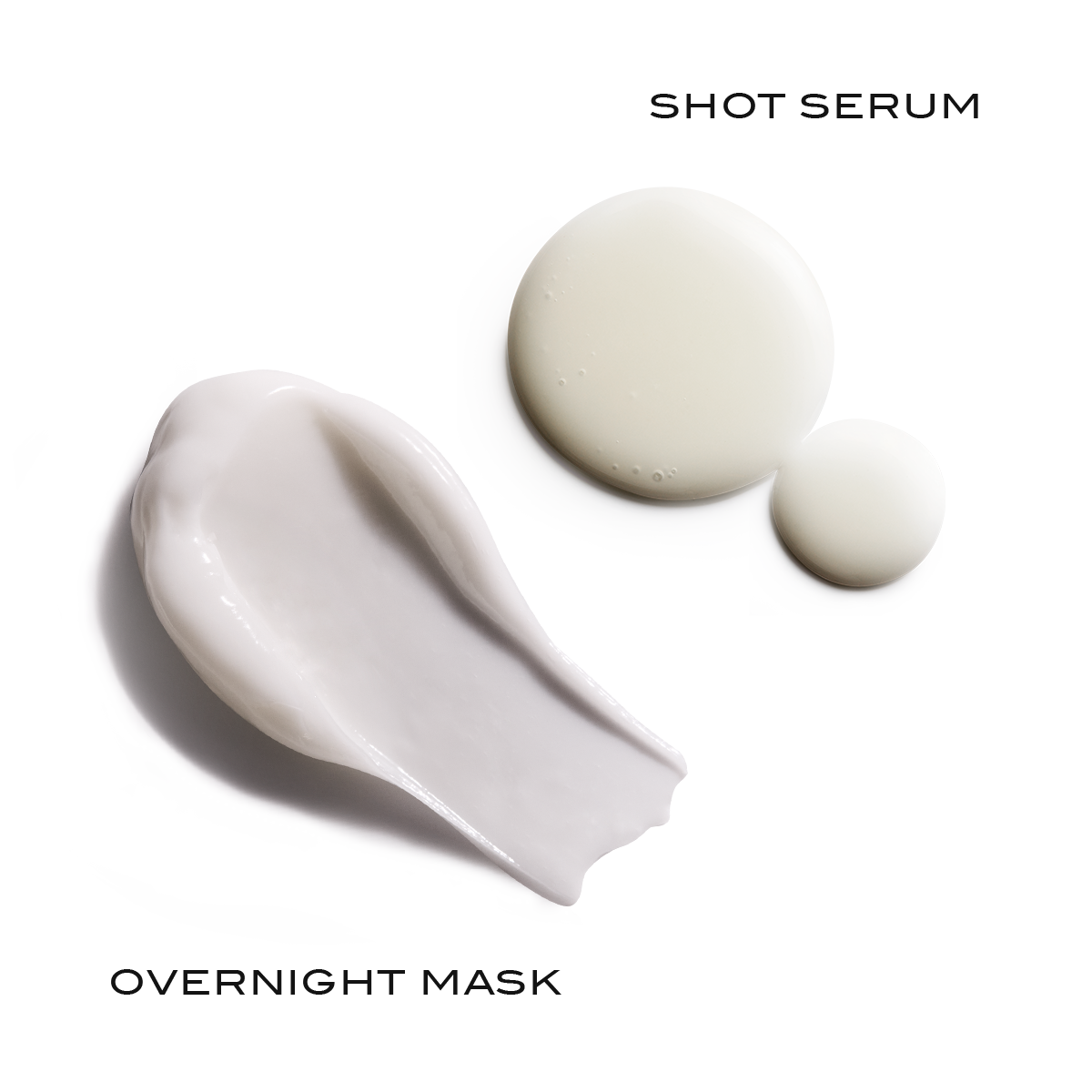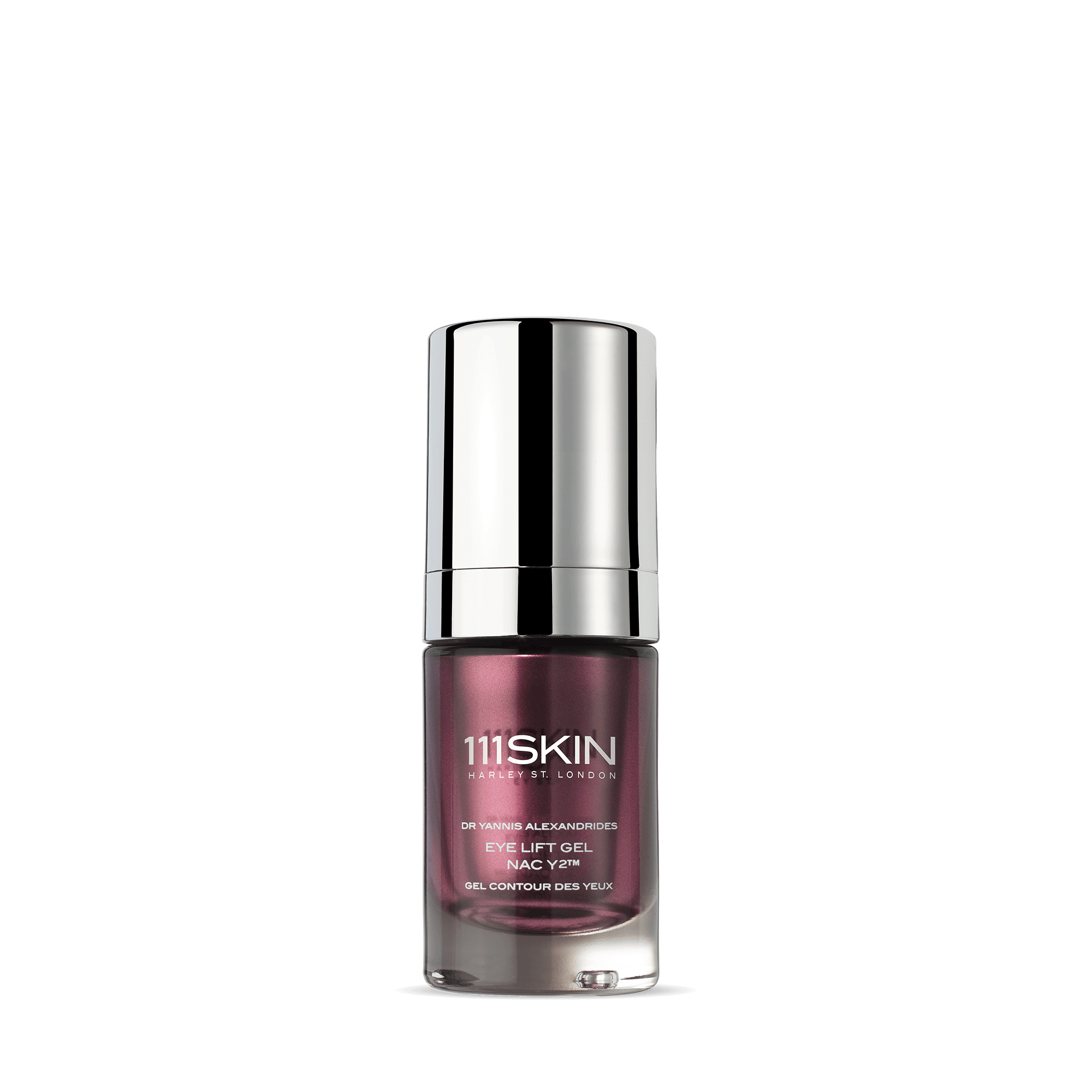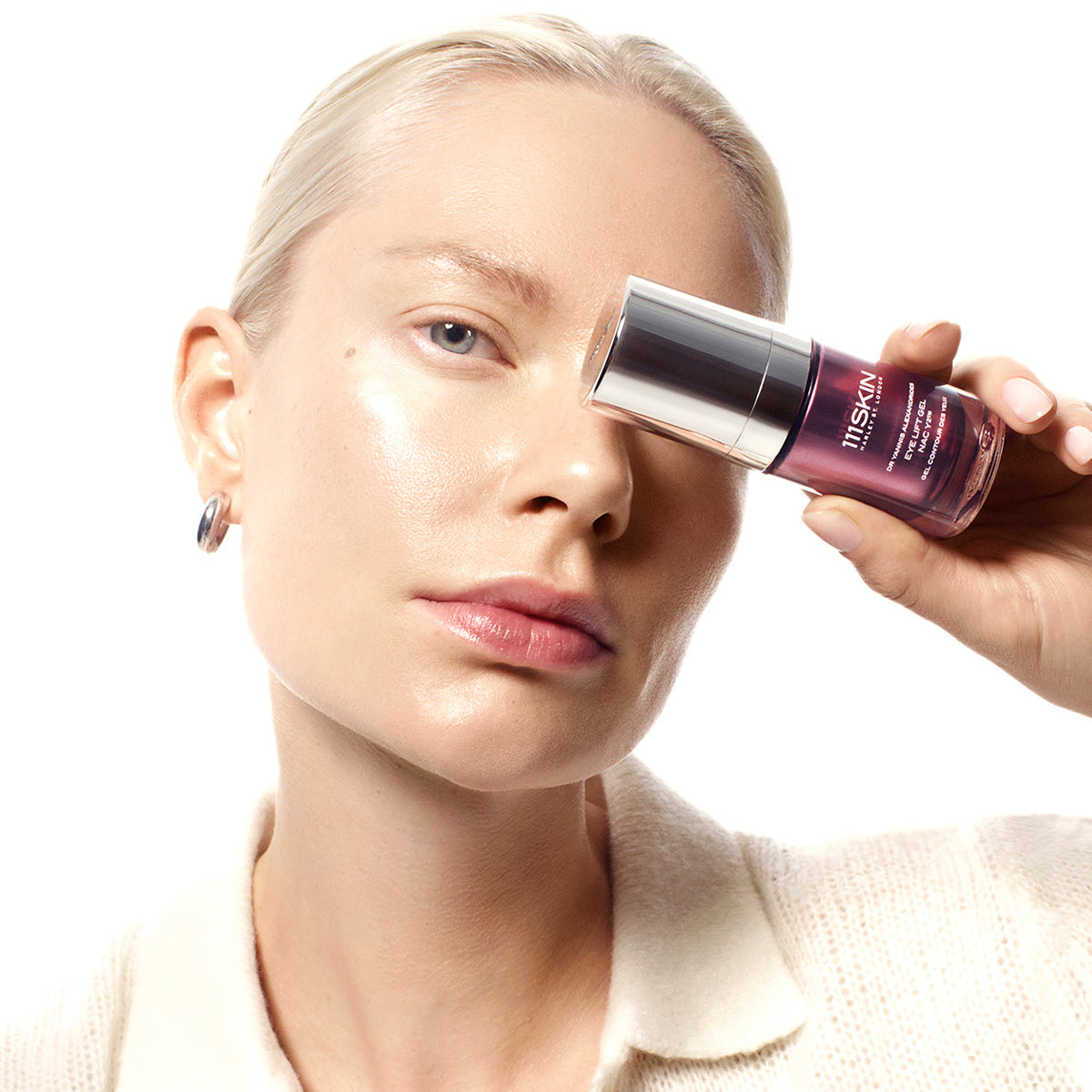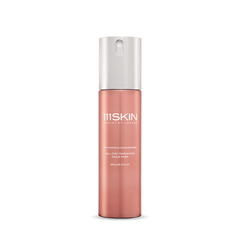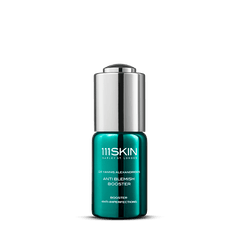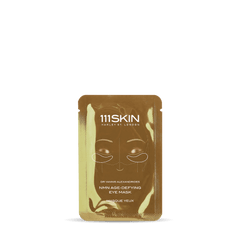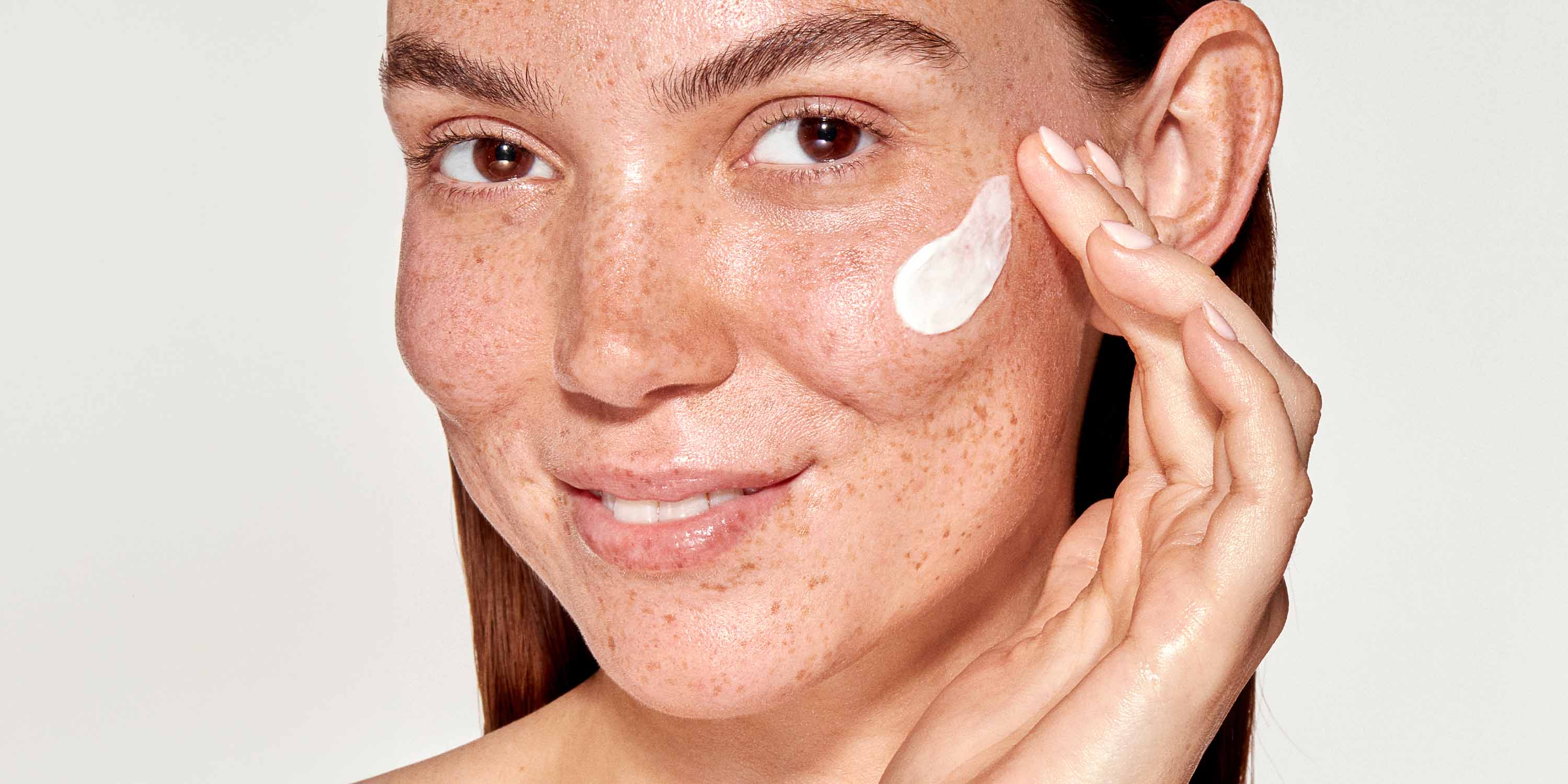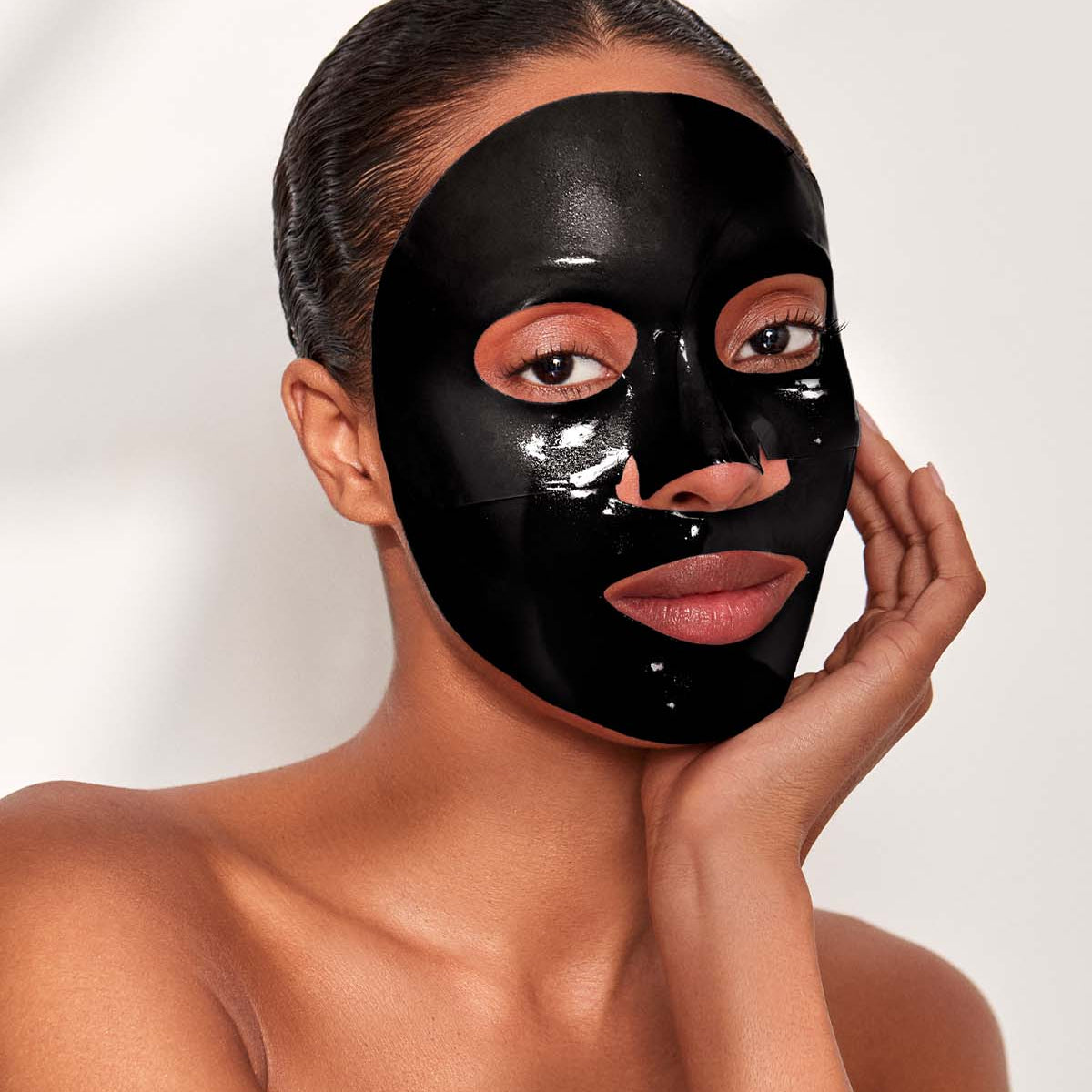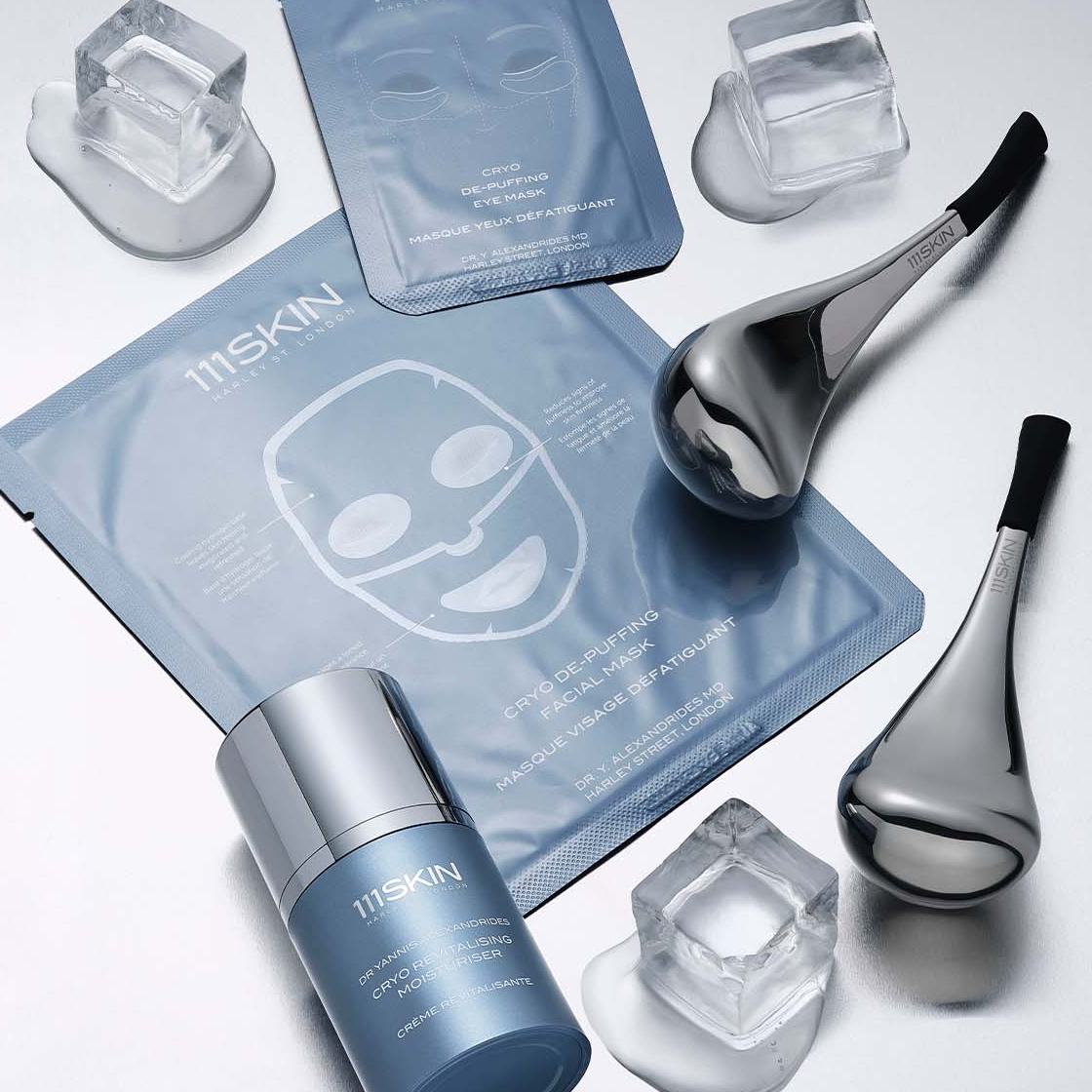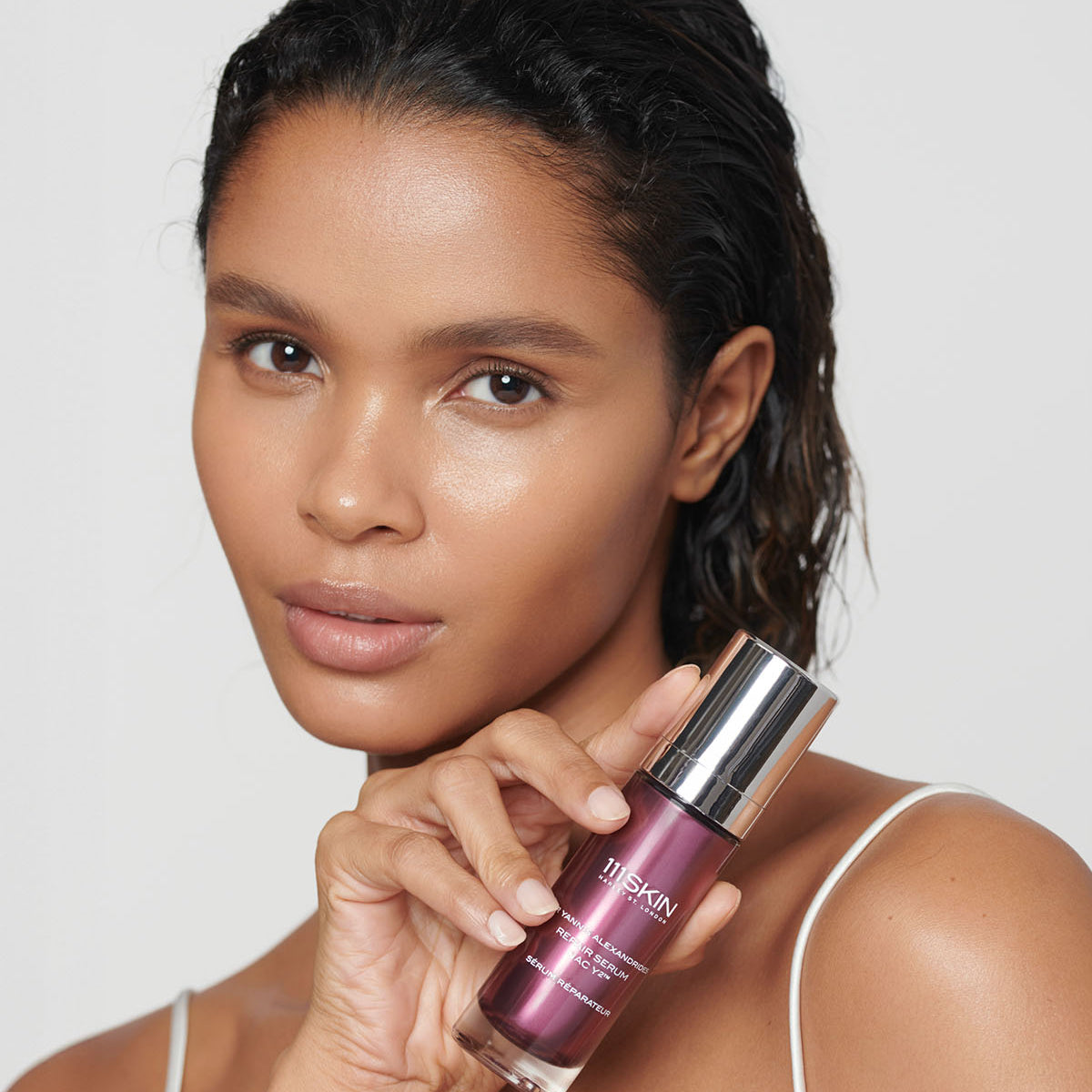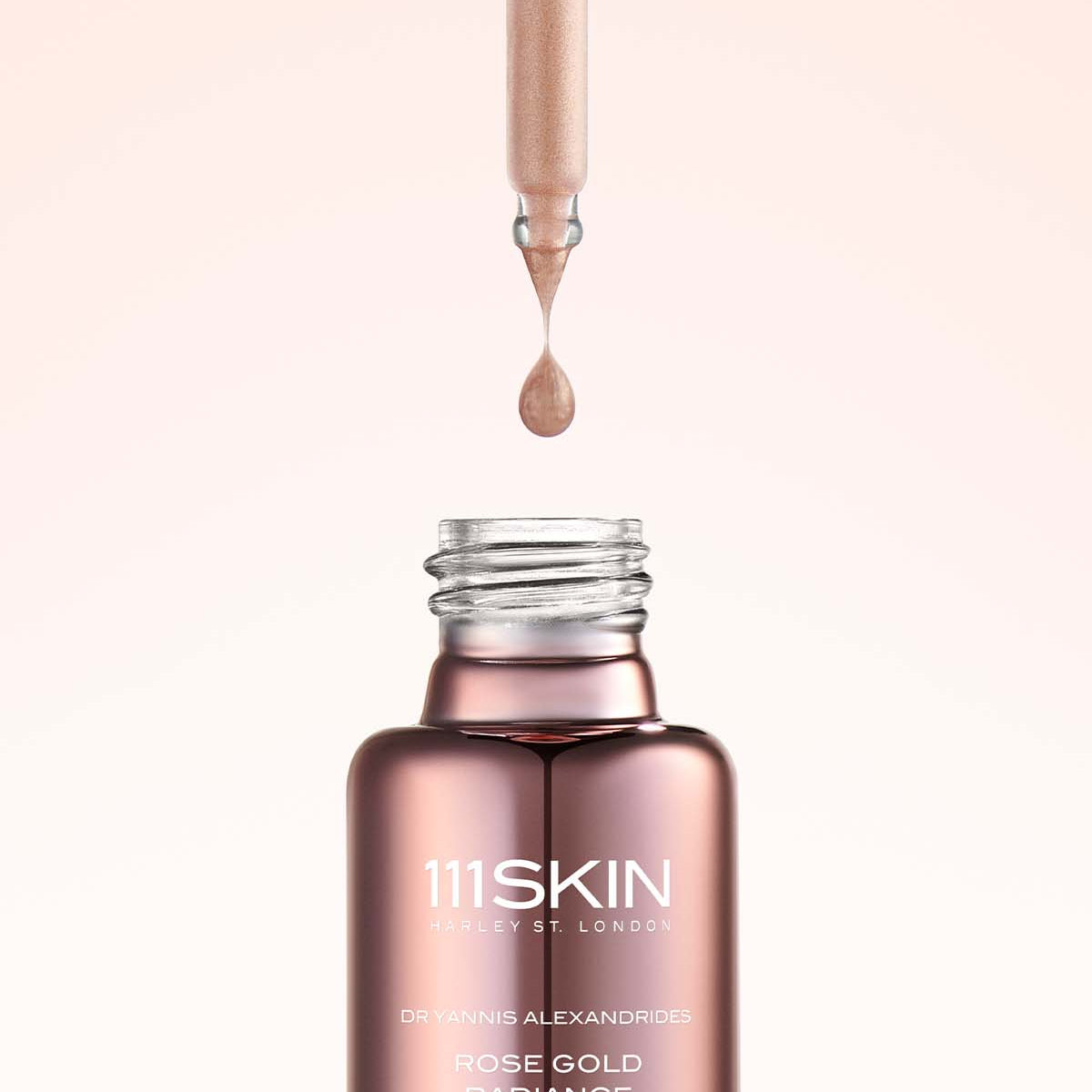5 min to read
Hyperpigmentation is a common skin concern that requires a targeted and consistent approach. With the right products and a well-structured skincare routine, you can brighten dark spots, improve skin tone, and maintain a healthy, radiant complexion.
Why Skincare Routines Matter for Hyperpigmentation
Hyperpigmentation occurs when excess melanin—the pigment responsible for your skin colour—is produced, resulting in dark spots or patches. While it can feel frustrating to treat, a considered skincare routine using targeted ingredients like Vitamin C, exfoliating enzymes, and retinoids can help fade discoloration and prevent new spots from forming.
Here is your ultimate guide to creating a morning and evening hyperpigmentation skincare routine that delivers results.
Morning Skincare Routine for Hyperpigmentation
1. Cleanser
Start your morning with a gentle yet effective cleanser to remove overnight oils and impurities without stripping your skin. Cleansers with mild exfoliating properties can also help kickstart the brightening process.
Our Enzyme Exfoliating Cleanser is an enzyme-rich formula which gently exfoliates dead skin cells while revealing a brighter complexion over time.
2. Serum
Niacinamide and Tranexamic Acid 2% are powerhouse ingredients to treat hyperpigmentation. They brighten dark spots and improve the appearanc melasma.
Our Dark Spot Correcting Serum is clinically proven to reduce the appearance of pigmentation by 36%. Your skin tone will be left with a smoother, more luminous appearance.
3. Moisturiser
A lightweight moisturiser keeps the skin hydrated and balanced. For hyperpigmentation-prone skin, choose a moisturiser that supports the skin barrier without clogging pores.
Our Repair Day Cream NAC Y²™ hydrates while delivering active ingredients deep into the skin, improving skin tone and texture.
4. Sunscreen
Sunscreen is non-negotiable when it comes to treating hyperpigmentation. UV exposure worsens dark spots and counteracts any progress made with treatments. Use a broad-spectrum SPF 50+ sunscreen, even on cloudy days.
Evening Skincare Routine for Hyperpigmentation
The night-time is when your skin repairs and regenerates. This is the ideal time to use more intensive treatments that target dark spots and support cellular renewal.
1. Cleanser
Begin with a cleanser that removes makeup, dirt, and oils accumulated throughout the day. Choose a product that soothes and preps the skin for active treatments such as our Exfoliating Enzyme Cleanser.
Double Cleansing in the evening ensures a thorough cleanse, especially if you wear makeup or sunscreen. Introduce our Black Diamond Vitamin C Brightening Cleanser to dissolve impurities and brighten your skin.
2. Exfoliant (2-3 times a week)
Regular exfoliation is crucial for hyperpigmentation as it removes dead skin cells, allowing treatments to penetrate more effectively. Enzyme-based exfoliants are gentle yet powerful for fading discoloration.
Tip: Use chemical exfoliants with AHAs (like lactic acid) or enzyme-based products to prevent irritation. Unless a dermatologist advises otherwise, AHAs and Retinoids should be used on alternating days to prevent skin irritation, inflammation and possible hyperpigmentation.

3. Retinol Treatment
Retinoids are essential for hyperpigmentation because they accelerate cell turnover, fading dark spots and improving skin texture. Use a retinol serum or oil at night-time only, as it makes skin more sensitive to the sun.
Our luxurious Black Diamond Retinol Oil delivers the benefits of retinol while hydrating the skin to avoid dryness and irritation.
4. Targeted Serum
To complement retinol, layer a serum rich in antioxidants or peptides to further support skin repair and brightening.
Our Black Diamond Serum boosts luminosity, promotes cell regeneration, and works alongside retinol to achieve even-toned skin.
5. Moisturiser
Lock in hydration with a nourishing night cream or emulsion. Ingredients like niacinamide or ceramides help soothe the skin and strengthen the skin barrier.
Tip: Ensure your evening moisturiser complements the products applied earlier in your skincare routine in order to maximize results.
Skincare Routine for Different Skin Types
Your skin type plays a critical role in how you approach treating hyperpigmentation. Here are tailored routines for different skin types:
Skincare Routine for Oily Skin
Oily skin tends to produce excess sebum, which can clog pores and exacerbate post-inflammatory hyperpigmentation. The focus should be on lightweight, oil-balancing products.
- Cleanser : A gel-based or foaming cleanser that removes oil and impurities without stripping the skin.
- Exfoliant : Use gentle chemical exfoliants like salicylic acid 2-3 times a week to unclog pores and fade pigmentation.
- Serum : Vitamin C in the morning for brightening and niacinamide to regulate oil production.
- Moisturiser : Opt for oil-free, non-comedogenic formulas.
- SPF50 (in the day): ideally a chemical rather than mineral screen as mineral SPFs can feel heavy on oily skin and increase the clogging of pores.
- Retinol (at night) : Apply a lightweight retinol serum at night to promote cell turnover.
Skincare Routine for Dry Skin
Dry skin can feel tight and flaky, which may worsen pigmentation if the skin barrier is compromised. The focus here is hydration and using gentle skincare treatments.
- Cleanser : A hydrating, cream-based cleanser to cleanse the skin without stripping moisture.
- Exfoliant : Use enzyme-based exfoliants 1-2 times a week to gently resurface the skin.
- Serum : Vitamin C in the morning for brightening, and hyaluronic acid for deep hydration.
- Moisturiser : Rich, nourishing moisturisers containing ceramides or squalane to protect the skin barrier.
- SPF50 (in the day): Apply either a mineral or chemical sunscree
Skincare Routine for Sensitive Skin
Sensitive skin is prone to redness and irritation, so focus on calming ingredients and avoid overly harsh treatments.
- Cleanser : A gentle, fragrance-free cleanser to cleanse the skin without causing irritation.
- Exfoliant : Skip physical exfoliants and limit chemical exfoliation to once a week using mild AHAs and PHAs.
- Serum : Use Vitamin C derivatives (like sodium ascorbyl phosphate) for brightening without irritation.
- Moisturiser : Soothing moisturisers with ingredients like niacinamide, aloe vera, or oat extract.
- SPF50 (in the day): Apply either a mineral or chemical sunscreen.
- Retinol (at night) : Use a low-concentration retinol or bakuchiol as a gentle alternative.
Skincare Routine for Combination Skin
Combination skin requires balancing hydration for dry areas while managing oil production in the T-zone.
- Cleanser : A balancing cleanser that removes excess oil while hydrating the skin.
- Exfoliant : Use a combination of AHAs, BHAs and PHAs 2-3 times a week to address multiple skin concerns.
- Serum : Vitamin C for brightening, and niacinamide to address uneven tone and oiliness.
- Moisturiser : A lightweight gel or cream-based moisturiser for balanced hydration.
- SPF50 (in the day): ideally a chemical rather than mineral screen as mineral SPFs can feel heavy on oily skin and increase the clogging of pores.
- Retinol (at night) : Apply a lightweight retinol serum at night for targeted treatment of dark spots.
By customizing your routine to your skin type, you can effectively address hyperpigmentation without compromising your skin’s healthy complexion.
Choosing the Right Serum for Your Hyperpigmentation
When addressing hyperpigmentation, selecting the right skincare products is essential for achieving an even, radiant complexion.
To help you find the best serum for your needs, we've broken down the benefits, key ingredients, and ideal skin concerns for some of our most effective treatments. Explore the comparison below to discover which formula aligns with your skincare goals.

STILL NEED HELP?
Take our short quiz to unlock your recommended hyperpigmentation routine based on your skin characteristics.
Key Ingredients for Hyperpigmentation Skincare
Here are the hero ingredients you should look for in products that target hyperpigmentation:
- Vitamin C : Brightens and evens out skin tone by reducing melanin production.
- Retinol (Vitamin A) : Promotes cell turnover to fade dark spots and smooth skin texture.
- Niacinamide : A multi-tasking ingredient that reduces inflammation, improves skin tone, and strengthens the skin barrier.
- AHAs/BHAs/PHAs : Chemical exfoliants that remove dead skin cells and improve product absorption.
- Hyaluronic Acid : Maintains hydration, ensuring your skin remains plump and healthy as it regenerates.
Read more on this topic here.

Tips for Optimizing Your Routine
Never Skip SPF: Sun protection is essential when treating hyperpigmentation, as UV exposure can darken existing spots and create new ones. Use a broad-spectrum SPF 50+ every morning and reapply throughout the day, especially after sweating or exposure to sunlight.
Combine Treatments Strategically: Pair Vitamin C in the morning with retinol in the evening for optimal results. Vitamin C works to brighten and protect during the day, while retinol promotes cellular turnover overnight. Avoid using both simultaneously to prevent irritation.
Layer Products Properly: Start with the thinnest, water-based products like serums first and finish with heavier, oil-based products like moisturisers or oils. This ensures maximum absorption of active ingredients without blocking the skin. For example, apply Vitamin C serum first in the morning and retinol at night before sealing with moisturiser.
Introduce Products Gradually: If you’re new to active ingredients like retinol or Vitamin C, start with lower concentrations and use them 2-3 times a week. Gradually increase frequency as your skin builds tolerance to avoid irritation and redness, adjusting usage if needed.
Be Consistent: Hyperpigmentation doesn’t fade overnight. Stick to your routine daily for at least 8-12 weeks to see visible improvements. Document your progress with photos every few weeks to track results and stay motivated.
Avoid Over-Exfoliation: While exfoliation is crucial for fading dark spots, overdoing it can compromise your skin barrier and worsen pigmentation. Use gentle enzyme-based or AHA/BHA exfoliants 2-3 times a week and always follow with a hydrating moisturiser.
Stay Hydrated: Incorporate ingredients like hyaluronic acid, glycerin, or squalane to keep your skin hydrated. Well-moisturised skin supports a healthy barrier, which is vital for managing hyperpigmentation and preventing irritation.
FAQs
How long does it take to see results from a hyperpigmentation skincare routine?
It typically takes 8-12 weeks of consistent use of targeted treatments like Vitamin C, retinol, and exfoliants to notice visible improvements in the skin.
Can people with sensitive skin treat hyperpigmentation?
Absolutely. Use gentle products like Vitamin C derivatives, low-strength retinol, and calming ingredients like niacinamide or aloe vera to treat hyperpigmentation without irritation.
What ingredients should I look for in products to treat hyperpigmentation?
Look for Vitamin C, retinol, niacinamide, AHAs/BHAs/PHAs, and hydrating ingredients like hyaluronic acid to target pigmentation and maintain skin health.
Can hyperpigmentation return after treatment?
Yes, if the skin is exposed to UV rays or inflammation persists, hyperpigmentation can recur. Consistent sunscreen use and maintenance treatments are key to long-term results.
Can natural remedies effectively treat hyperpigmentation?
While some natural ingredients like aloe vera or licorice root may provide mild benefits, scientifically proven treatments like Vitamin C, retinol, and exfoliants deliver more reliable and noticeable results.
